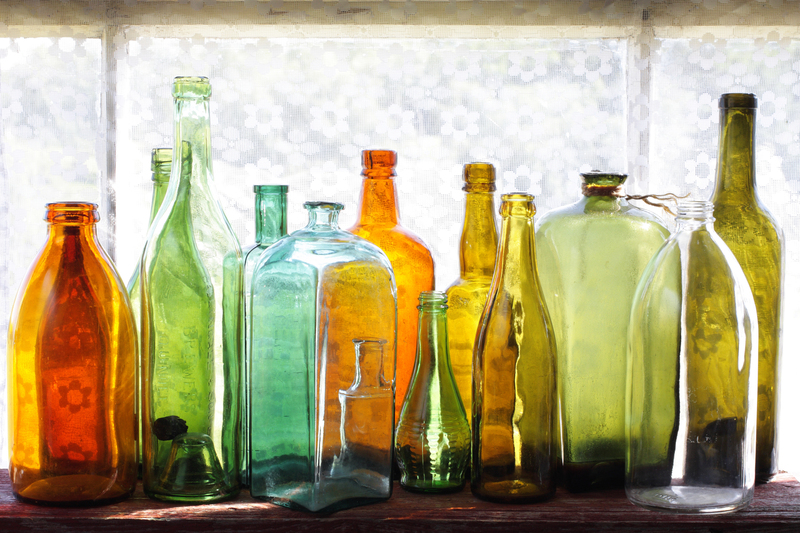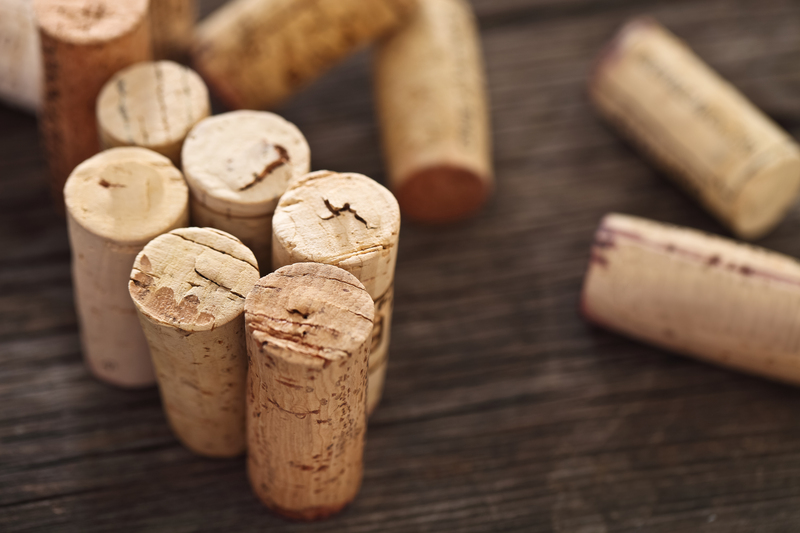Find Out If Your Old Pots and Pans Can Be Recycled: A Comprehensive Guide
Are your kitchen cabinets cluttered with old pots and pans that have seen better days? Do you wonder: Can these worn-out cookware items actually be recycled? If you're environmentally conscious and looking to declutter responsibly, this guide will walk you through everything you need to know about recycling old pots and pans. Discover the best practices, what materials are accepted, alternative disposal methods, and tips for giving your unwanted cookware new life.
Understanding Pot and Pan Materials
Before diving into recycling options, it is crucial to identify the materials in your old cookware. This step will help you determine the best disposal or recycling method.
Common Cookware Materials
- Stainless Steel: A sturdy, rust-resistant alloy.
- Aluminum: Lightweight and often used in affordable cookware.
- Copper: High thermal conductivity, prized by professional chefs.
- Cast Iron: Heavy, durable, and good at retaining heat.
- Non-stick Coated (e.g., Teflon): Convenient but often less recyclable due to coatings.
- Ceramic: Sometimes used as a coating or a full body, typically considered inert.
- Enameled: Cast iron or steel with a porcelain enamel glaze.
Identifying your pots and pans material is usually easy. Turn the item over and check for an engraved or stamped symbol or label indicating what it's made from.

Can Pots and Pans Go in Curbside Recycling?
One of the biggest misconceptions is that you can simply throw old cooking pots and pans into your curbside recycling bin. Unfortunately, that's not usually the case.
Why Most Curbside Programs Don't Accept Cookware
- Size and Shape: Cookware may clog or damage sorting machines.
- Mixed Materials: Handles, coatings, and rivets can complicate recycling.
- Food Residue: Leftover food or oil makes recycling more difficult.
Instead, most local recycling programs recommend against placing old pots and pans in regular household recycling bins. So, what should you do with your worn-out cookware?
How to Recycle Your Old Pots and Pans
Recycling old pans and discarded pots is possible, but the process depends largely on the material and condition. Here's a step-by-step approach to ensure you recycle responsibly:
Step 1: Remove Non-Metal Attachments
Unscrew and remove plastic, silicone, or wooden handles, lids, and any non-metal parts. These are rarely recyclable with the main pot or pan body.
Step 2: Clean Thoroughly
Scrub off food remnants and grease. Excessive residue can hinder recycling or even cause the item to be discarded by the facility.
Step 3: Identify Your Local Scrap Metal Facility
Most old pots and pans--especially those made from metal--can be taken to a scrap metal recycler. Search online for "scrap metal recycling near me" or call your local waste management facility to ask about their acceptance policy.
- Metal recyclers will typically accept stainless steel, aluminum, and iron cookware.
- You may be paid a small amount for larger lots of pure metal items.
Step 4: Special Considerations for Non-stick and Coated Cookware
If your pans are coated with Teflon, ceramic, or enamel, call ahead and ask the recycling center if they accept coated cookware. Some facilities can, while others do not.
Step 5: Drop Off or Arrange for Pickup
Many cities hold periodic bulk recycling or hazardous waste events where you can drop off items like cookware. Otherwise, deliver the cleaned and prepared cookware directly to the scrapyard.
Are Non-Stick Pans Recyclable?
Non-stick pans, such as those coated with Teflon or ceramic, present unique recycling challenges. The non-stick coating is not recyclable and, in some cases, can complicate the metal recycling process.
What to Do with Non-Stick Cookware
- Check with your local scrap yard--some accept non-stick pans if handles are removed and the coating is heavily scratched or worn down.
- If your landfill or recycling center will not take non-stick cookware, seek out a specialized cookware recycling program, sometimes run by brands or retailers.
Never place non-stick pans in standard curbside recycling bins!
Can Cast Iron Pans Be Recycled?
Great news for fans of cast iron cookware: cast iron pans are made of 100% recyclable material! Scrap yards love iron, and many will pay for heavy items like old cast iron skillets or Dutch ovens--simply remove any non-metal parts before you drop them off.
Are Ceramic and Glass Cookware Recyclable?
Traditional glass recycling does not accept Pyrex or borosilicate baking dishes. Ceramics are also challenging to recycle, as they have a different chemical makeup than recyclable glass.
- Some art centers or creative reuse programs may accept ceramic or glass cookware for reuse in art or mosaic projects.
- If these options don't exist locally, you may have no choice but to dispose of ceramic pots or glass pans in the landfill.
Alternative Ways to Reuse and Repurpose Old Pots and Pans
Recycling isn't the only option for keeping old cookware out of the landfill. Here are creative and eco-friendly ways to extend the life of your unwanted pots and pans:
1. Donate Usable Cookware
If your pots and pans are still in working condition, many charity shops, thrift stores, shelters, or community kitchens will gladly accept them.
2. Upcycle for Home Decor or Gardening
- Turn large pots into outdoor planters.
- Use small pans as quirky wall decorations or kitchen organizers.
- Transform skillets into bird feeders, serving trays, or even clocks.
3. Offer Them Online
List your old cookware for free or at a low price on websites such as Craigslist, Facebook Marketplace, or Freecycle. Someone may be interested in restoring or creatively reusing your old pots and pans.
4. School or Art Projects
Teachers, artists, and crafters often find creative uses for old kitchen items. Reach out to local schools or art studios to see if they can use your old cookware for educational or art projects.
Brand-Backed Recycling Initiatives
Some cookware brands and home goods stores have started take-back or recycling programs for old pots and pans. Notable mentions:
- TerraCycle: Partners with some cookware brands to collect and recycle old kitchenware.
- Bed Bath & Beyond and similar retailers: Occasionally host recycling drives for household goods.
- Local cookware stores: Inquire about trade-in events or environmental initiatives.
These programs are usually limited to certain brands, types of cookware or require you to purchase a replacement, so check the details in advance.
Frequently Asked Questions About Recycling Old Pots and Pans
Can I Put Old Pots and Pans in the Trash?
Technically, yes. But disposing of metal cookware in the landfill is wasteful due to the environmental impact and the value of the raw materials. If possible, always opt for recycling or reuse options first.
How Do I Know if a Pot or Pan is Pure Metal?
Remove all non-metal parts and check for a recycling symbol, usually on the bottom. Metallic sound and magnetic attraction are also clues.
Do I Need to Remove Handles Before Recycling?
Yes. Most scrap metal recyclers ask you to remove plastic, silicone, or wood handles and discard them separately.

Sustainable Cookware Choices for the Future
When it's time to replace your retired pots and pans, consider buying brands that offer eco-friendly cookware:
- Stainless Steel and Cast Iron: Both are highly durable and 100% recyclable.
- Aluminum Cookware: Look for products made from recycled aluminum.
- Brands with Take-Back Programs: Some manufacturers guarantee responsible disposal.
- Non-Coated Options: Reduce landfill waste by avoiding non-stick coatings.
Such choices help minimize future waste and ensure that, when you're done with your new cookware, it can enter a sustainable disposal or recycling loop.
Conclusion: Make Responsible Choices for Old Pots and Pans
Whether you recycle, upcycle, or donate, responsible disposal of old pots and pans is a key step towards kitchen sustainability. Remember:
- Metal pans and pots are best taken to a local scrap yard or recycling center.
- Non-stick and coated pans must be handled with more care, and may not always be recyclable in your area.
- Reuse and upcycling are creative, sustainable alternatives to landfill disposal.
- Check for brand buy-back or recycling programs in your region.
By understanding the materials in your cookware and the options for responsible disposal, you're helping cut waste, conserve resources, and make the planet a cleaner and healthier place. Next time you clean out your kitchen drawers, think twice before you toss that old skillet or saucepan--and seek out the most sustainable solution!
Ready to recycle your old pots and pans? Search for your nearest scrap metal recycling facility or share with someone who can give your cookware a second life. Every small step towards better recycling habits counts!